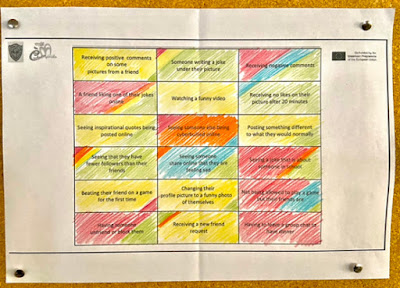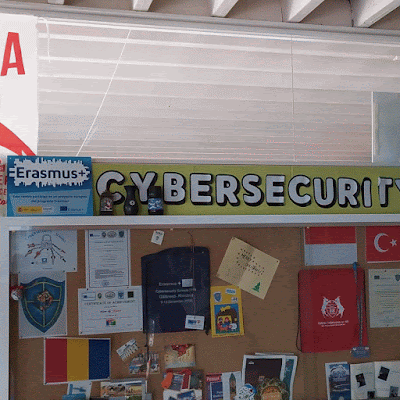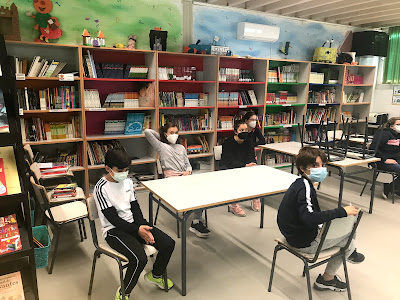Nuestros alumnos de quinto presentan a través de Meet sus trabajos sobre las buenas prácticas de Turquía y Rumanía.
Our fifth graders present their work on best practices from Turkey and Romania through Meet.
Buena práctica de Turquía / Turkish Good Practice
Todo el nivel de 5º participó en un Padlet en el que tuvieron que simular conversaciones de WhatsApp que incluyeran abreviaturas. La actividad fue un éxito y el resultado lo compartimos a continuación.
The whole 5th grade participated in a Padlet in which they had to simulate WhatsApp conversations including abbreviations. The activity was a success and the result is shared below.
Los alumnos de 5º C realizaron una presentación colaborativa con Google donde investigaron sobre las abreviaturas que están admitidas cuando escribimos mensajes de texto. Aunque no es aconsejable realizar un uso excesivo de las mismas. Os invitamos a ver la presentación de nuestros compañeros. ¡Enhorabuena a la clase y a su teacher Daniel Gallardo!
5th grade "C" students made a collaborative presentation with Google where they researched about the abbreviations that are allowed when writing text messages. Although it is not advisable to use them excessively. Congratulations to the class and to their teacher Daniel Gallardo!
Los alumnos de 5º E hicieron una presentación colaborativa en la que reflejaron los consejos más importantes que debemos seguir cuando escribimos mensajes a través de los principales servicios de mensajería.
The 5th E pupils made a collaborative presentation in which they reflected on the most important tips to follow when writing messages through the main messaging services.
Buena práctica de Rumanía / Romanian Good Practice
Tanto los alumnos de 5º C como 5º E optaron por llevar a cabo la actividad de resiliencia consistente en colorear las situaciones presentadas con el color que representa la emoción. Rojo: enfado; naranja: preocupado; amarillo: feliz; azul: triste; y verde: no me afecta.
Both 5th C and 5th E students chose to carry out the resilience activity consisting of colouring the situations presented with the colour that represents the emotion. Red: angry; orange: worried; yellow: happy; blue: sad; and green: does not affect me.
Aprendimos que cada uno experimenta emociones distintas a una misma situación, en otros casos coincidimos, y también se dio que una misma acción podía tener varias emociones según el estado de ánimo o las circunstancias personales de la persona. Enlace a las fichas de trabajo de 5º E.
We learned that everyone experiences different emotions in the same situation, in other cases we coincided, and we also learned that the same action could have different emotions depending on the mood or personal circumstances of the person.
Hoja de trabajo de la alumna: Lucía Mendoza Fernández / Student worksheet: Lucía Mendoza Fernández.
Hoja de trabajo de los alumnos de 5º C / 5th C students' worksheet
English post in our TwinSpace
FOTOS DE LA IMPLEMENTACIÓN DE LA BUENA PRÁCTICA DE TURQUÍA POR LOS ALUMNOS DE 6º C



















































